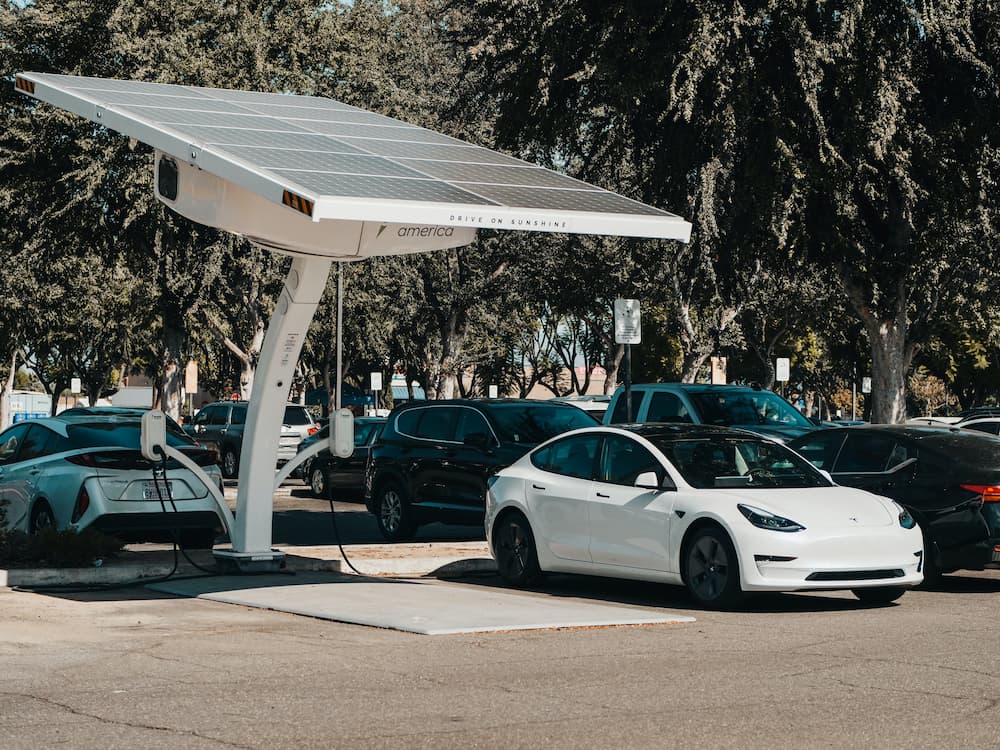Introduction
The sun, a constant source of energy that has fueled life on Earth for billions of years, is now emerging as a powerful force in the world of transportation. Solar-powered trucks, once a futuristic concept, are now on the cusp of revolutionizing the way we think about long-haul logistics and sustainability. These innovative vehicles harness the sun’s energy through photovoltaic (PV) panels, paving the way for a cleaner, greener, and more efficient future in transportation. In this article, we will explore the fascinating world of solar-powered trucks, their technology, benefits, challenges, and their potential to shape the future of the trucking industry.
The Technology Behind Solar-Powered Trucks
Solar-powered trucks operate on a relatively straightforward yet ingenious principle: they use solar panels to capture sunlight and convert it into electricity. Here’s a closer look at how this technology works:
Solar Panels: High-efficiency PV panels, typically composed of crystalline silicon or advanced thin-film technology, are strategically mounted on the truck’s exterior surfaces. These surfaces include the roof, sides, a tonneau cover tonneaucovershub.com, and sometimes even the trailer to maximize solar exposure.
Sunlight Conversion: When sunlight strikes the solar panels, it triggers the photovoltaic effect. This phenomenon involves the absorption of photons by the PV material, which in turn excites electrons, generating direct current (DC) electricity.
Energy Storage: To ensure continuous power availability, solar-powered trucks are equipped with high-capacity batteries, often lithium-ion or similar advanced technologies. These batteries serve as energy reservoirs, storing excess electricity generated during sunlight hours.
Electric Propulsion: The stored electricity powers the truck’s electric motor or contributes to a hybrid powertrain system. This system can work in tandem with conventional internal combustion engines (ICEs) or operate as purely electric vehicles (EVs), depending on the design.
Benefits of Solar-Powered Trucks

The adoption of solar-powered trucks offers numerous benefits, making them an attractive option for both fleet operators and the environment:
Emissions Reduction: Solar-powered trucks produce zero tailpipe emissions. This significant reduction in greenhouse gas emissions contributes to cleaner air quality and a reduced carbon footprint.
Cost Savings: Although the initial investment in solar panels and batteries can be substantial, the long-term operational costs are significantly lower than those of traditional diesel trucks. Solar power is essentially free once the infrastructure is in place.
Energy Independence: Solar-powered trucks are less reliant on traditional fuel infrastructure. This can make the trucking industry more resilient to energy price fluctuations and supply chain disruptions.
Extended Range: Solar power can extend the range of electric and hybrid trucks. This is particularly beneficial for long-haul transportation, reducing the need for frequent recharging stops.
Public Perception: Solar-powered trucks are seen as environmentally conscious solutions, enhancing a company’s public image and appealing to eco-conscious consumers.
Challenges and Limitations
While the prospects of solar-powered trucks are promising, they do face several challenges and limitations that need to be addressed for widespread adoption:
Limited Solar Energy Harvesting: The available surface area on a truck for solar panels is limited. As a result, the energy generated may not always be sufficient to power the entire vehicle, especially during overcast days or at night.
High Initial Costs: Equipping a truck with high-quality solar panels and advanced battery systems can be costly. However, these costs are gradually decreasing as technology advances and economies of scale come into play.
Increased Weight: Solar panels and batteries add weight to the truck, potentially impacting payload capacity and overall efficiency. Striking the right balance between energy generation and weight is a challenge.
Battery Technology: While battery technology is advancing, there are still challenges in developing high-capacity, lightweight, and long-lasting batteries that can store enough energy for extended hauls.
Infrastructure and Compatibility: Widespread adoption of solar-powered trucks requires the development of adequate charging infrastructure and compatibility with existing transportation systems.
Energy Storage Efficiency: Improving the efficiency of energy storage systems, including reducing energy losses during charging and discharging, is crucial for maximizing the benefits of solar power.
Weather Dependence: Solar-powered trucks are highly dependent on weather conditions. Extended periods of rain, snow, or cloud cover can limit their effectiveness.
Conclusion
Solar-powered trucks represent a groundbreaking innovation in the transportation industry, offering a promising avenue for sustainable logistics. While they face challenges and limitations, ongoing advancements in technology, combined with growing environmental awareness, are driving the development and adoption of solar-powered trucks. As the world continues to prioritize emissions reduction and renewable energy sources, these trucks could play a pivotal role in shaping the future of transportation. They offer cleaner, more efficient solutions for the movement of goods while reducing our reliance on fossil fuels and mitigating the environmental impact of long-haul trucking. As the sun continues to shine brightly in our skies, solar-powered trucks are poised to illuminate the future of transportation.

